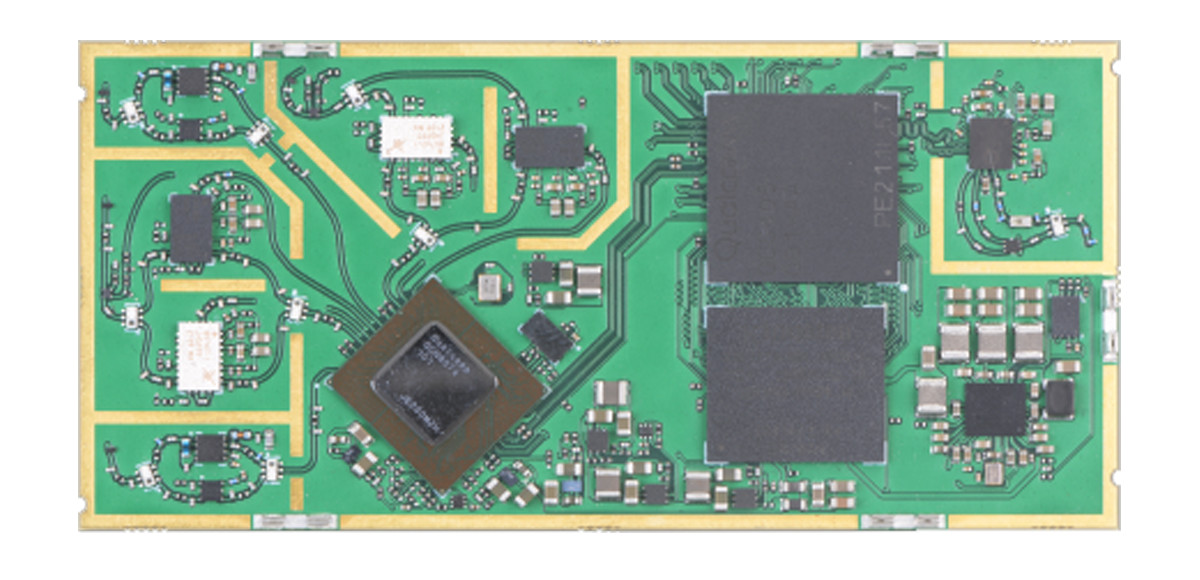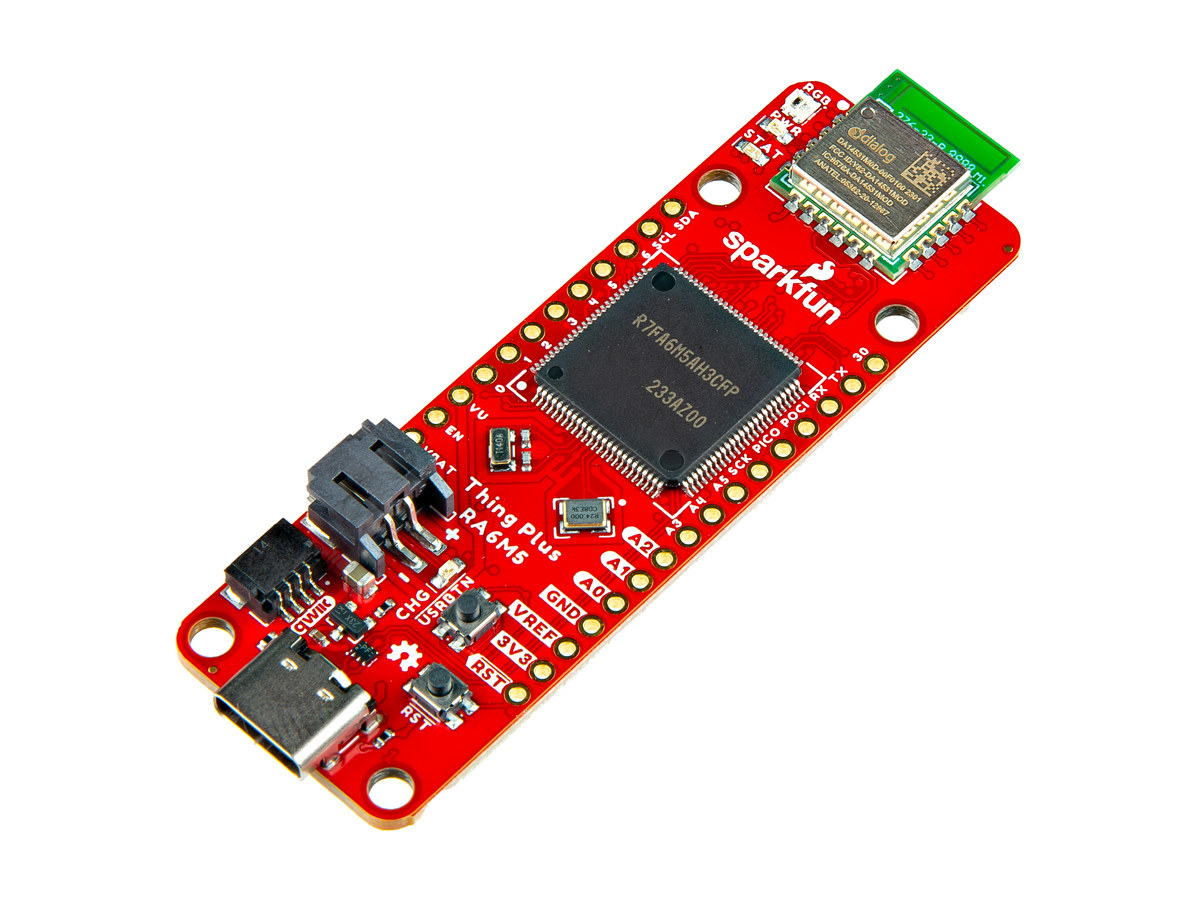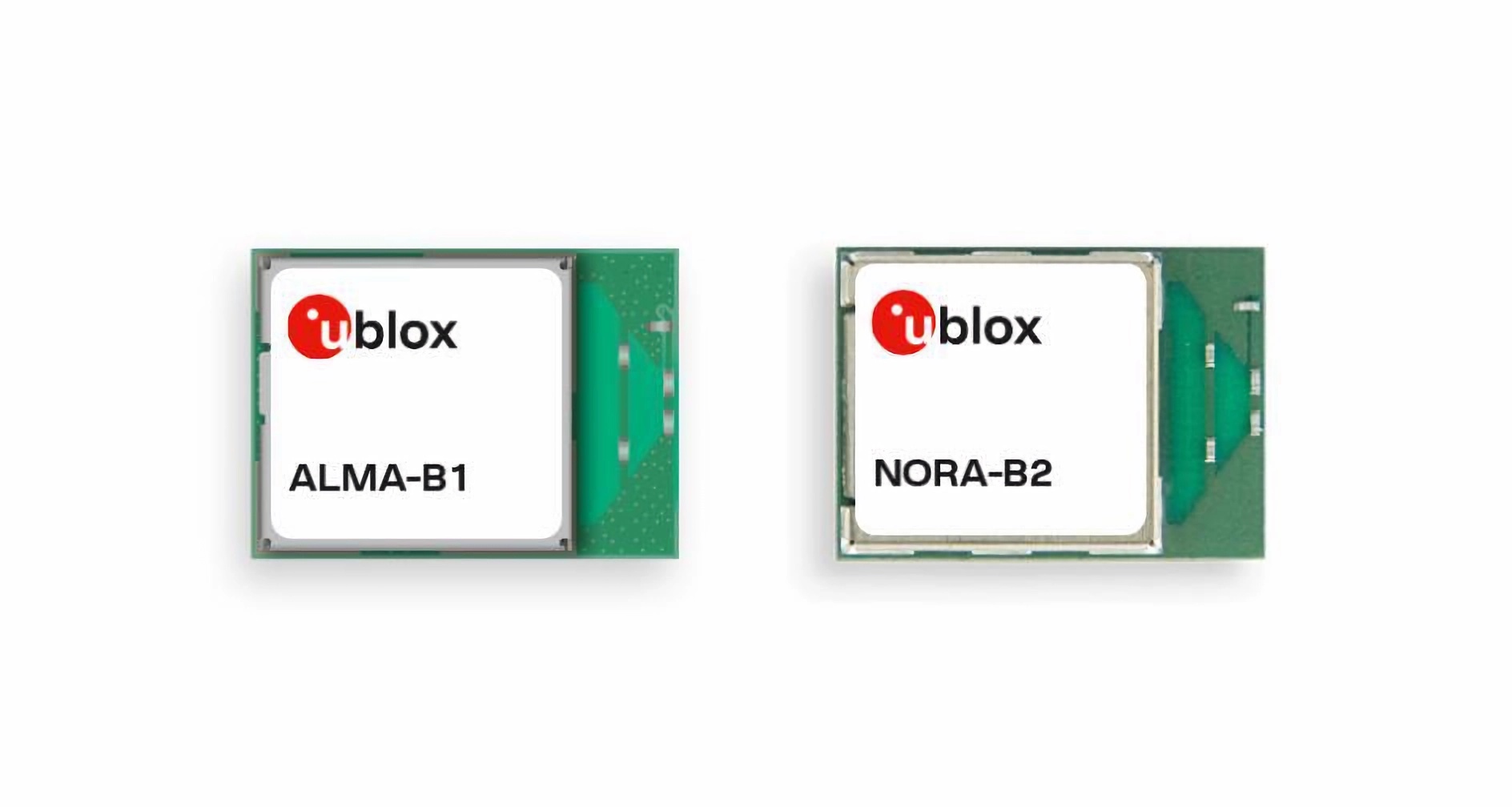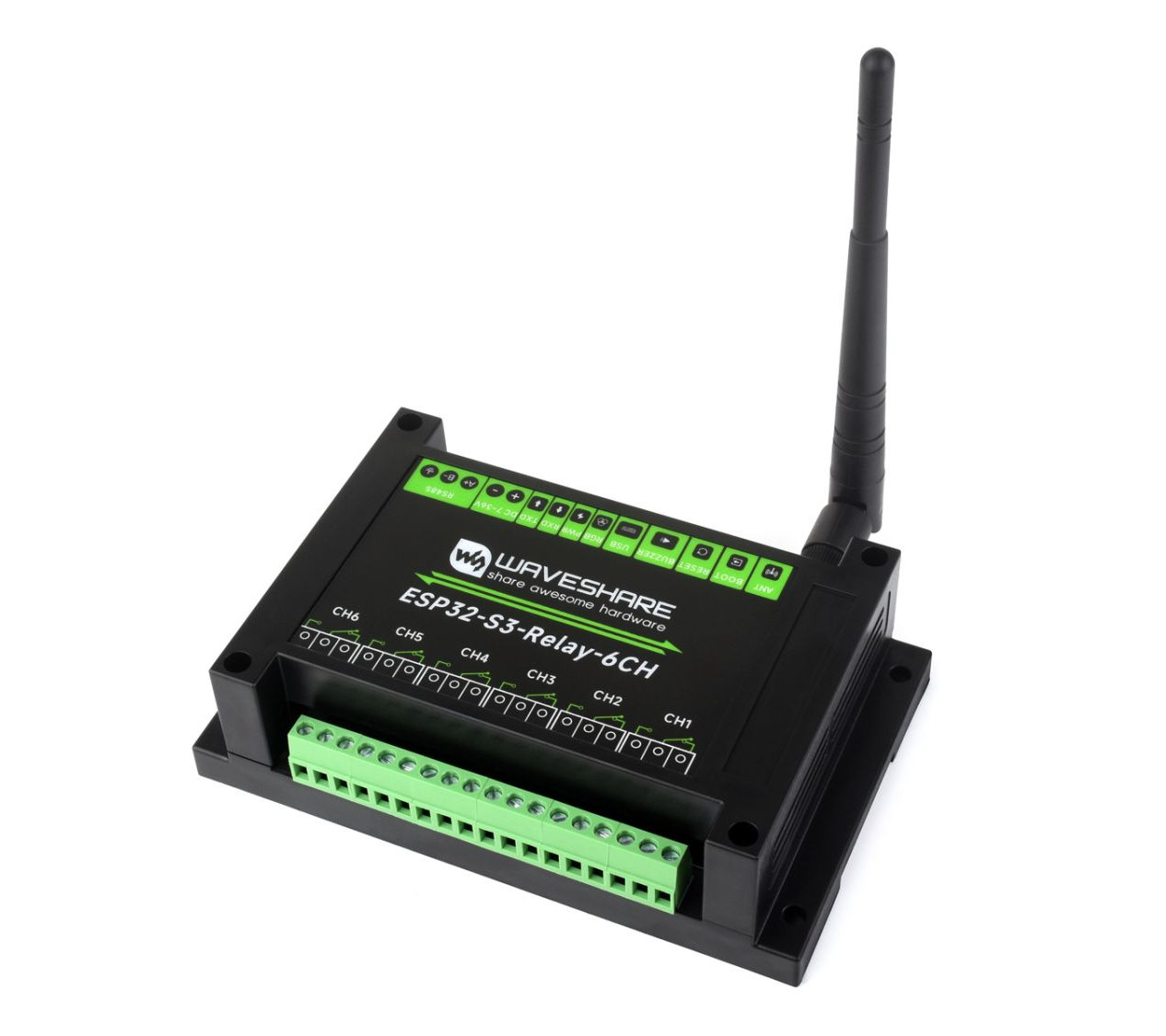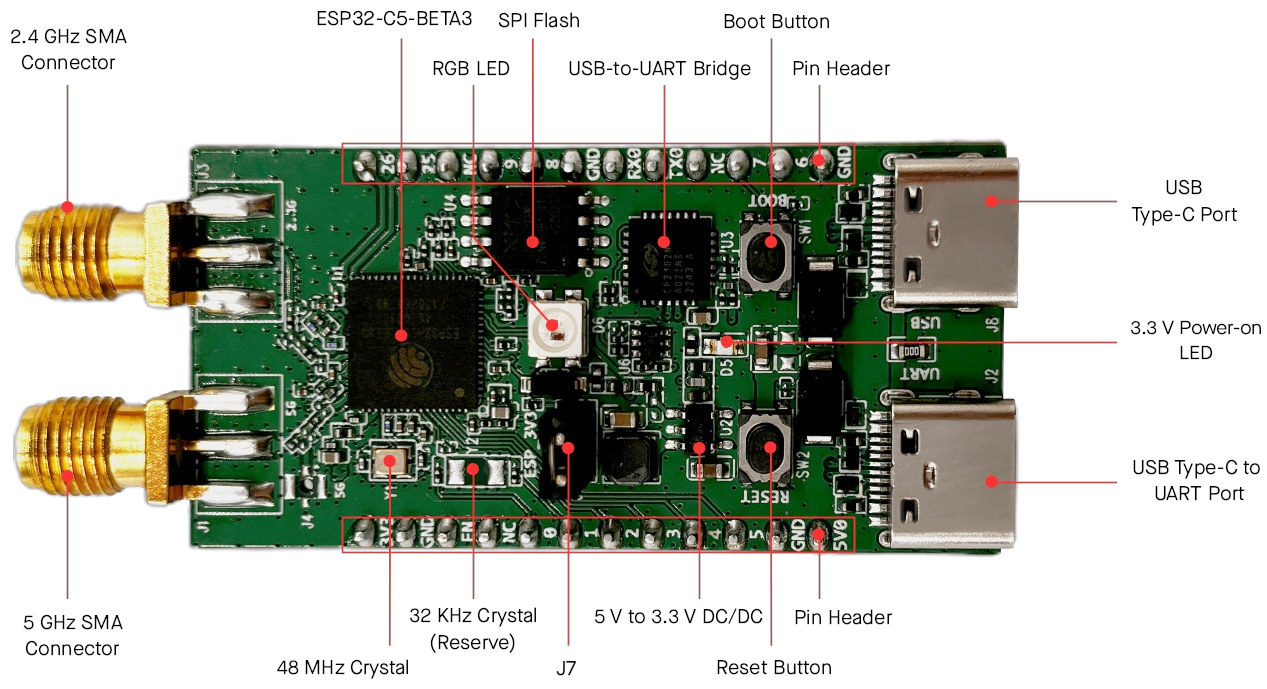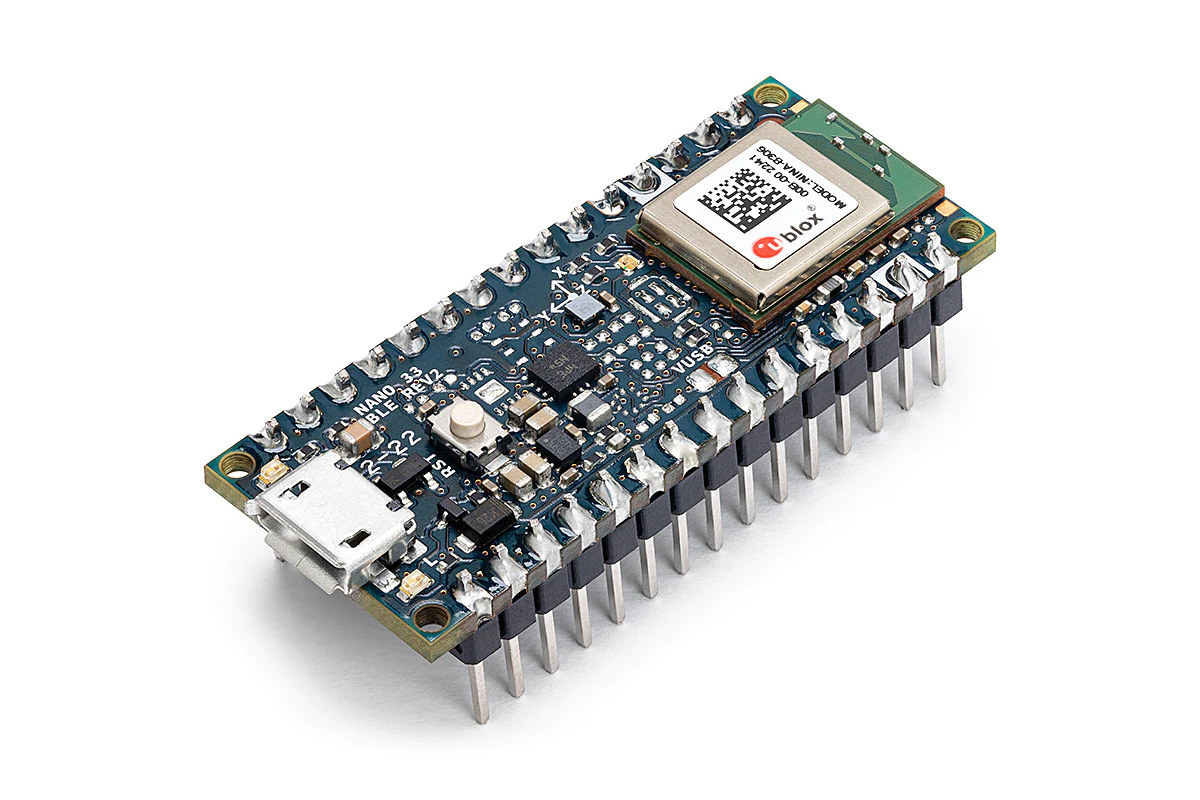8devices has recently introduced TobuFi, a Qualcomm QCS405-powered System-on-Module (SoM) featuring dual-band Wi-Fi 6 and Wi-Fi 5 capabilities. The device also features 1GB LPDDR3, 8GB of eMMC storage, and multiple display resolutions. It also offers various interfaces, including USB 3.0, HDMI, I2S, DMIC, SDC, UART, SPI, I2C, and GPIO. In previous posts, we covered 8devices product launches like the Noni M.2 WiFi 7 module, Rambutan and Rambutan-I modules, Habanero IPQ4019 SoM, Mango-DVK OpenWrt Devkit, and many more innovative products. If you’re interested in 8devices, feel free to check those out for more details. 8devices TobuFi SoM specifications: SoC – Qualcomm QCS405 CPU – Quad-core Arm Cortex-A53 at 1.4GHz; 64-bit GPU – Qualcomm Adreno 306 GPU at 600MHz; supports 64-bit addressing DSP – Qualcomm Hexagon QDSP6 v66 with Low Power Island and Voice accelerators Memory – 1GB LPDDR3 + 8GB eMMC Storage 8GB eMMC flash SD card – One 8-bit (SDC1, 1.8V) and one […]
SparkFun Thing Plus – RA6M5 board supports Bluetooth 5.1 LE through Renesas DA14531MOD module
SparkFun Thing Plus – RA6M5 is a small MCU board based on a 200 MHz Renesas RA6M5 Cortex-M33 microcontroller and a Renesas DA14531MOD Bluetooth 5.1 LE module that follows Adafruit Feather/Sparkfun Thing Plus form factor. The module can transmit data over BLE with just 4mA (at 3.3V) power consumption and the company claims the board to be powered by a coin-cell battery. A LiPo battery can also be connected to the board through a 2-pin JST battery connector, and the Things Plus – RA6M5 board also features a single-cell charger and LiPo fuel gauge. Sparkfun Thing Plus – RA6M5 specifications: Microcontroller – Renesas R7FA6M5AH3CFP Core – Arm Cortex-M33 microcontroller @ up to 200 MHz Memory – 512KB SRAM Storage – 2MB Flash Security – Arm TrustZone, and Secure Crypto Engine 9 Wireless – Renesas DA14531MOD module for Bluetooth 5.1 LE connectivity with support for CodeLess AT command Datapump Radio Transmit […]
Silicon Labs MG26, BG26, and PG26 Cortex-M33 AI microcontrollers offer up to 3200KB flash, 512KB RAM, 64 GPIO’s
Silicon Labs has announced the xG26 family of Cortex-M33 wireless SoCs and MCUs that consists of the multiprotocol MG26 SoC, the Bluetooth LE BG26 SoC, and the PG26 general-purpose MCU without wireless connectivity, and features double the flash and RAM of the Silicon Labs xG24 devices. The xG26 family also comes with double the number of general-purpose input/output (GPIO) pins as the xG24 to enable engineers to build more complex devices in combination with the larger flash and memory reaching up to 3200 KB and 512KB respectively and also integrates a Matrix Vector Processor (MVP) for AI/ML hardware acceleration and Math functions. Silicon Labs MG26 and BG26 wireless SoCs MG26 and BG26 key features and specifications: MCU core – Arm Cortex-M33 @ 78 MHz AI/ML accelerator – Matrix Vector Processor that is 8x faster and 6x lower power than Cortex-M33 processing, and supports an MVP Math Library for non-ML workloads […]
u-blox ALMA-B1 and NORA-B2, Bluetooth 5.4 LE modules are based on Nordic nRF54H20 and nRF54L15 SoCs
Wireless communication solutions provider, u-blox has added two new modules to its Bluetooth LE portfolio with the ALMA-B1 and NORA-B2 modules built upon the latest low-power wireless nRF54 chips from Nordic Semiconductor. Both modules come in a portable, power-efficient layout and support Bluetooth 5.4 and 802.15.4 (Thread, Matter, Zigbee). The ALMA-B1 and NORA-B2 BLE modules are powered by the low-power nRF54H20 and nRF54L15 SoCs, respectively. This enables them to provide IoT devices with sufficient processing power for edge computing and machine learning without the need for external components. u-blox claims that the ALMA-B1 module provides “more than twice the processing power of previous Bluetooth LE modules” and can replace general-purpose microcontrollers in compact solutions. Also, the NORA-B2 reportedly “consumes up to 50% less current compared to previous generations of Bluetooth LE modules,” leading to longer battery life or smaller batteries in end products. Both modules are classified as open CPU […]
6-channel ESP32-S3-based WiFi relay module offers RS485 interface, supports Raspberry Pi Pico HATs
Waveshare ESP32-S3-Relay-6CH is a 6-channel WiFi and Bluetooth relay module based on Espressif Systems ESP32-S3 wireless microcontroller that also supports RS485 control and comes with headers taking Raspberry Pi Pico HATs adding RTC, CAN Bus, RS232, LoRa, sensors, or other features. The relays are rated 250VAC/30VDC up to 10A, the system take 7V to 36V DC input through a terminal block, and can be programmed with Arduino or MicroPython though a USB-C port. It also features a a built-in buzzer, an RGB LED, and is housed in a DIN Rail-mountable ABS case. Waveshare ESP32-S3-Relay-6CH specifications: Wireless module – ESP32-S3-WROOM-1U-N8 by default MCU – ESP32-S3 dual-core Tensilica LX7 up to 240 MHz with 512KB SRAM Storage – 8MB Quad SPI flash Wireless – 2.4 GHz WiFi 4 and Bluetooth LE 5 u.FL connector for external antenna 6x relays via terminal blocks Rating – Up to 10A 250V AC / 30V DC […]
ESP32-C5 beta board features 2.4GHz and 5GHz SMA antenna connectors, two USB-C ports
Espressif ESP32-C5 microcontroller was announced in June 2022 as the first dual-band WiFi 6 IoT chip from the company. It’s been quiet since then, but things are about to change as the ESP32-C5 beta board’s documentation has very recently been released. The ESP32-C5 was initially announced as a dual-band WiFI 6 and Bluetooth 5.0 LE SoC, but the user manual for the beta board indicates that it also supports Zigbee 3.0 and Thread 1.3, so there’s an 802.15.4 in the wireless microcontroller. The ESP32-C5 board itself features two SMA connectors for 2.4 GHz and 5GHz antennas or test equipment, two USB-C ports, two 12-pin GPIO header, Boot and Reset buttons, an RGB LED, and a 2-pin header for current measurements. ESP32-C5 beta board specifications: SoC – ESP32-C5-BETA3 CPU – Single-core 32-bit RISC-V processor @ up to 240 MHz Memory – 400KB SRAM on-chip Storage – 384KB of ROM on-chip, support […]
Embedded Open Source Summit 2024 schedule – Embedded Linux, Zephyr OS, and Real-time Linux
The Embedded Open Source Summit 2024 (EOSS 2024) will take place on April 16-18 and the Linux Foundation has already announced the schedule with conference sessions, lightning talks, and birds of a feather (BoF) sessions covering embedded Linux, Zephyr OS, and real-time (RT) Linux. While I won’t be attending in person, I still find it interesting to check out the schedule as we may learn more about the current status of embedded Linux. So I’ve created my own little virtual schedule out of the available talks. Tuesday, April 16 – Day 1, Embedded Open Source Summit 2024 9:05 – 9:45 – No, It’s (Still) Never Too Late to Upstream Your Legacy Linux-Based Platforms by Neil Armstrong, Linaro Nearly 7 years ago, Neil already spoke about this subject in Berlin, and it’s still very true. Do you maintain or used to maintain a Linux-based board or SoC off-tree? Then there are […]
Arduino Nano 33 BLE Rev2 board features BMI270 six-axis IMU and BMM150 magnetometer
Arduino Nano 33 BLE Rev2 is an update to the Arduino Nano 33 BLE board launched in 2019 that features two IMU sensors instead of one with the BMI270 6-axis accelerometer and gyroscope and the BMM150 3-axis magnetometer and also comes with a few changes made after feedback from users. The new board is still powered by an nRF52840 Bluetooth LE module (u-Blox NINA B306) and remains Arduino Nano compatibility with two rows of 15-pin headers, but replaces the 9-axis IMU with the BMI270 and BMM150 chips, adds new pads and test points for USB, SWDIO, and SWCLK, a new VUSB soldering jumper, and brings changes to the power circuitry. Arduino Nano 33 BLE Rev2 specifications: Wireless Module – U-blox NINA B306 module SoC – Nordic Semi nRF52840 MCU Core – Arm Cortex-M4F microcontroller @ 64MHz Memory and storage – 1MB Flash, 256KB RAM Bluetooth 5.0 LE Up to 2 […]


